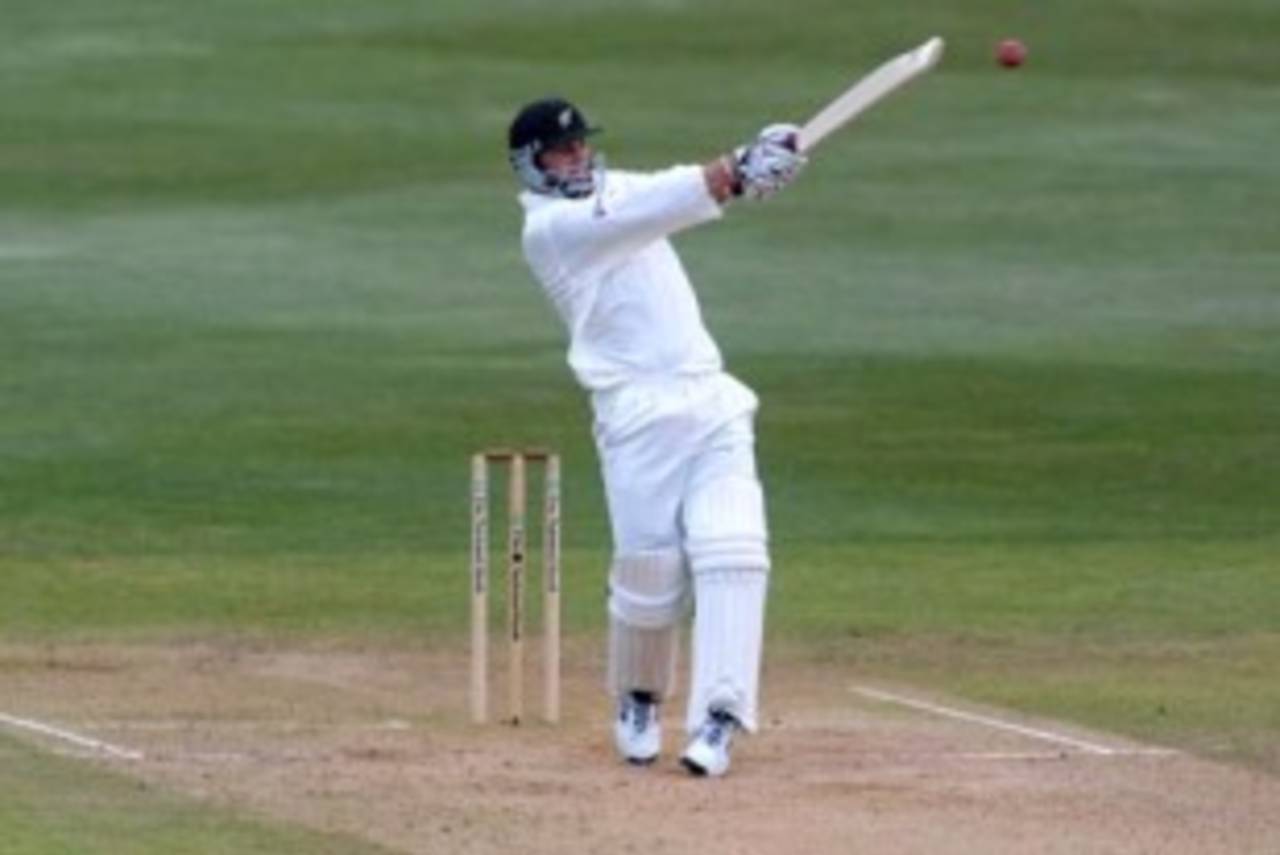Mathew Sinclair: from riches to rags
Mathew Sinclair burst onto the Test arena with a double-hundred, yet been forced to quit the game to secure himself and his family a means to a living
Freddie Wilde
Jul 17, 2013, 3:55 PM

Mathew Sinclair was the first New Zealand cricketer to score a double-century on Test debut • Chris Skelton/Photosport
In 1999, Mathew Sinclair became the first New Zealand cricketer to score a double-century on Test debut; and he did so against a West Indies bowling attack that included Courtney Walsh. The following year, Sinclair scored 150 against South Africa, this time against Allan Donald, Shaun Pollock, Makhaya Ntini and co. Then, a year after that, Sinclair notched up his second double-century in just his 12th Test with 204 not out against Waqar Younis, Saqlain Mushtaq et al.
If you take these three innings in isolation, and then consider the way that the following decade in the world of cricket panned out, you would struggle to envisage the end to Sinclair's career that has materialised.
On July 17, Sinclair announced his retirement from cricket, saying that he would instead sign on for unemployment benefits to support his wife and two children. "This is the reality. This is what it's like. It has been quite a tough decision to make... It has been very hard to look for some sort of meaningful employment... I had to make a conscious decision to give up the game to make myself more marketable."
Sinclair, who despite his promising start to his international career represented New Zealand only intermittently and played the last of his 33 Tests in 2010, said it was difficult to find work during the off-season with employers knowing he would only be available for six months of the year. This was a decision based on the cold financial realities of cricket in New Zealand, a profession he felt was no longer sustainable.
Sinclair's retirement is a stark reminder of the monetary discrepancy that remains between players from different corners of the globe. While MS Dhoni earns an estimated $50 every minute, there are still some professionals who cannot make a living by playing cricket all year round.
Despite Kerry Packer, Jagmohan Dalmiya, Lalit Modi, and the Indian Premier League, there are pockets of international cricket that remain desperately poor. New Zealand are a nation with a rich cricketing lineage, and while Sinclair's international career fizzled into a domestic one, he continued to display his excellence in this arena, where he scored 36 first-class hundreds, a number which is bettered by only five New Zealand players. And although it is far from a financial haven, New Zealand are one of the eight major nations in world cricket, and it remains staggering that Sinclair was forced to make the decision.
So next time Jesse Ryder is criticised for choosing Delhi Daredevils over New Zealand, or Daniel Vettori for choosing Royal Challengers Bangalore over a Test match, just remember Sinclair's story, and remember how a man who at one point seemingly had the world at his feet ended up retiring from cricket to join the job queue. These players only play cricket for a short while, and they have to maximise their opportunities, especially when you consider the financial black hole that lurks below them in domestic cricket.
If you have a submission for Inbox, send it to us here, with "Inbox" in the subject line
Freddie Wilde is a teenage blogger based in Hampshire who first played cricket at the age of seven. He tweets here